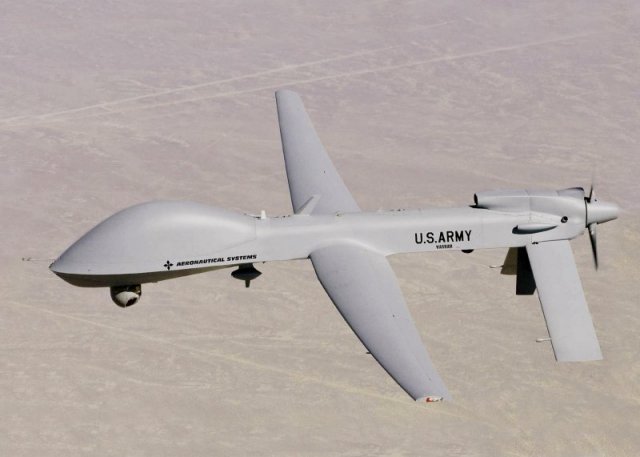Breaking news
General Atomics Aeronautical Systems Predator B demonstrates threat radar detection 81304173.
|
|
|||
|
Defense & Security News - USA
|
|||
|
|
|||
|
General Atomics Aeronautical Systems Predator B demonstrates threat radar detection
|
|||
|
General Atomics Aeronautical Systems, Inc. (GA-ASI), a leading manufacturer of Remotely Piloted Aircraft (RPA) systems, radars, and electro-optic and related mission systems solutions, today announced the successful airborne demonstration of a Radar Warning Receiver (RWR) on a GA-ASI Predator B/MQ-9 Reaper Block 5 aircraft. The company-owned Predator B operated from GA-ASI's Gray Butte Flight Operations Facility near Palmdale, Calif., against various ground-based radars.
|
|||
|
|
|||
 |
|||
|
|
|||
|
"The successful demonstration of a mature radar warning receiver on our company-owned Predator B clearly shows the utility of the aircraft in conducting missions in the proximity of threat radars and enemy air defenses," said Claudio Pereida, executive vice president, Mission Systems, GA-ASI. "We are pleased to be the first company to demonstrate this capability on a remotely piloted aircraft and hope to make it available to interested customers on a quick-reaction basis."
The Raytheon ALR-69A RWR, carried within GA-ASI's standard payload pod, provides enhanced situational awareness to aircrew and air element command and control units by identifying potential radar threats in or near "contested airspace" environments. "The ALR-69A provides improved detection range and accurate, unambiguous identification in dense signal environments," said Paul Overstreet, ALR-69A program manager, Raytheon. "Its open architecture is what allows it to operate on manned or unmanned aircraft." In various flight profiles, the pod was able to validate RWR performance which met or exceeded current thresholds for both air and ground radar threats. Additionally, the RWR information to the flight crew was deemed useful for triggering flight crew action, such as manually cross-cueing to other onboard sensors to validate threat information. GA-ASI plans further RWR demonstrations later in the year to include integrating with Link 16 (a military tactical data exchange network). Development and testing is currently being conducted under Internal Research and Development (IRAD) funding, with the goal of partnering with potential customers in the near future. |
|||



















